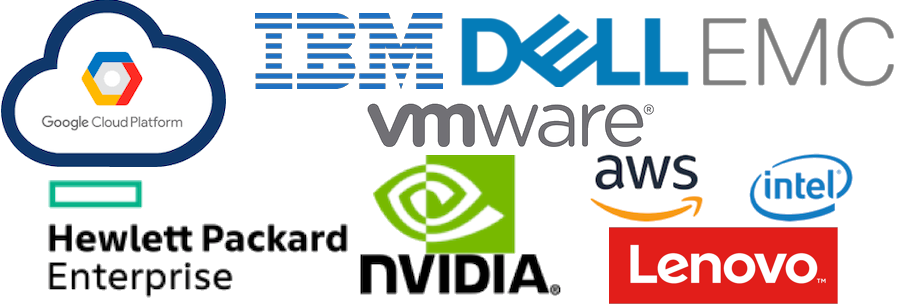Third Annual Texas A&M Research Computing Symposium
Last Updated: May 8, 2019
Sponsor Talks
(Scientific and technical computing on the Google Cloud Platform)
Speaker: Ward Harold
Company: Google
Abstract:
HPC/AI Convergence, Workload Matters
Speaker: Mark Hill
Company: NVIDIA
Abstract: In the era of convergence of HPC with AI, capturing and understanding your work load is critical to getting the most from the hardware you have or the hardware you will acquire. Couple that with the post Moore’s Law world we live in now make the balance of CPU and GPU more important than ever. The talk will explore capturing Workload data and important aspects of GPU nodes for acceleration at the shared infrastructure level. The discussion will conclude with available performance features including Tensor Cores and Automated Mixed Precision at the applications layer.
Utilizing FPGAs for Advanced Computing
Speaker: Jeff Nigh
Company: Intel Corporation
Abstract: FPGAs are now more readily available as general purpose compute devices, enabled by new development and investment in FPGA acceleration. Researchers, software developers, and data scientists can leverage Programmable Accelerator Cards, qualified open-source driver stacks, and high-level programming languages to accelerate custom algorithms, database accesses, image inferencing, genomics, and more.
Predictive Analytics using Amazon Web Services
Speaker: Sanjay Padhi, Ph.D.
Company: AWS Research and Technical Computing
Abstract: One of the most explored features of Big Data is predictive analytics. Predictive analytics is a set of techniques that are fundamental to large organizations like Amazon. Methods such as Machine Learning are used in many aspects of life, including health care, education, financial modeling, and marketing. Analytics on Big Data has given rise to various “smart” projects, such as Connected Intersections, Smart Cities, and Smart Health. This talk will provide a range of such studies using predictive analytics including detailed overview of methods such as Machine Learning (ML) and Deep Learning using AWS. Fully managed Artificial Intelligence (AI) services to help researchers build, train and deploy ML models in various domains including Computer Vision and Natural Language Processing (NLP) will also be outlined. Supervised and unsupervised based learning frameworks and its implications in the fields of Scientific Computing, Medical Imaging, Cancer detection, Diabetic Retinopathy, and Voice-enabled solutions to improve management of chronic disease will be discussed. Collaborations on research with funding agencies such as the NSF and NIH (including NIH STRIDES), as well as AWS Research Credit program will also be outlined.
AI for research
Speaker: Matthew Ziegler
Company: Lenovo
Abstract:
HPC Future Trends
Speaker: Sammy Zimmerman
Company: Hewlett Packard Enterprise
Abstract:

